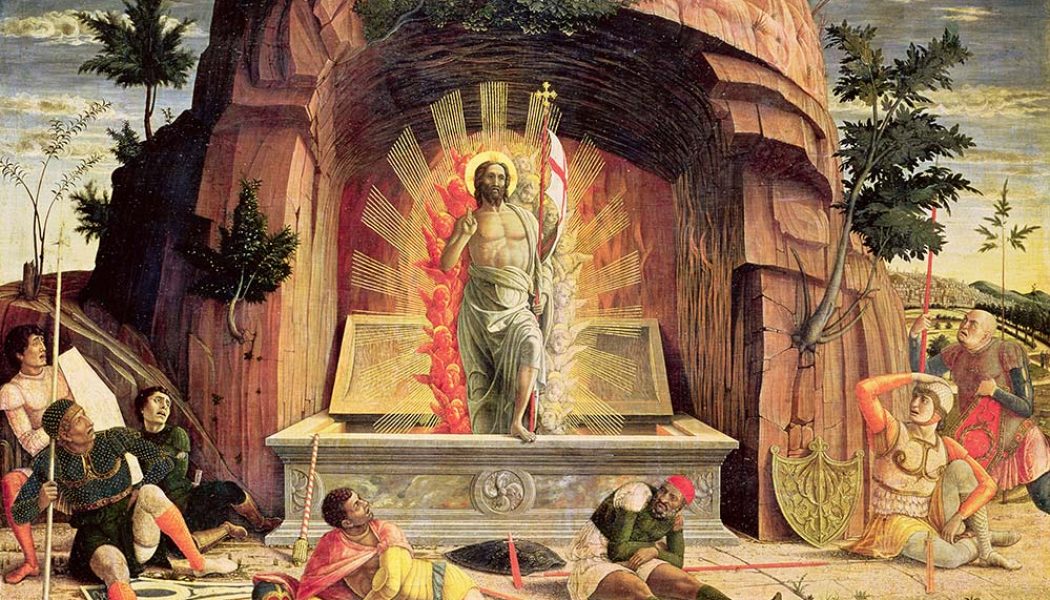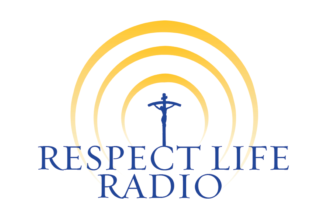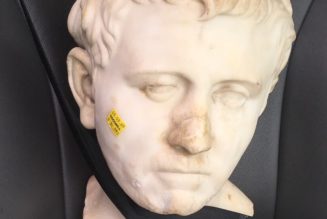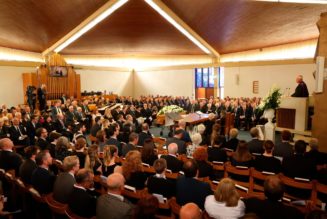
Even if know that Easter is the most important feast of the liturgical year, Christmas still seems like a much bigger deal. Christmas is known for its cheer–singing, treats, presents, fires, and family–but we’re not quite sure how to celebrate Easter. Pascha (the feast’s Latin name) focuses like the original Passover on being spared of death and beginning a new life. The feast happens in Spring (where the word Easter comes from) as a natural sign that we should begin again. All the penances of Lent should culminate in deep joy, not in going back to our old ways, but in living with a new freedom. It’s a deeper joy than Christmas, even if we don’t have the customs to express it any longer.
I filmed a virtual theology on tap talk this last week focused on Easter shows us that God is not dead , as Nietzsche told us, and that, as Christians, God needs to live in and through us in our daily lives. This is how we build Christian culture:
There are many customs related to Easter, that help shape Christian culture, though many have been forgotten. Fr. Francis Xavier’s Weiser’s Handbook of Christian Feasts and Customs, published in 1952, serves as an excellent guide for rediscovering old traditions. In relation to Easter, he speaks of:
- New clothes: Just as neophytes donned white garments at the Vigil, so it became a custom to wear new clothes for Easter.
- Easter walk: “Another picturesque old Easter Sunday custom,” Fr. Weiser explains “is the ‘Easter walk’ through fields and open spaces after Mass. Dressed in their finery, the men and women, especially the younger ones, march in a well-ordered parade through the town and out into the open country.” Later in the week, longer Emmaus walks through the countryside would also take place.
- Easter laughter: Coming back to Church in the afternoon, it was a custom in the Middle Ages to tell jolly tales, meant to produce gaiety after the somberness of Lent, with moral conclusions to the tales, of course.
- Easter bells: Some churches in Eastern Europe would ring their bells all day long.
This last practice leads into the musical celebration of Easter. If we are truly joyful, we will sing! Singing is part of the way Christians celebrate, rather than giving in to excess:
And do not get drunk with wine, for that is debauchery; but be filled with the Spirit, addressing one another in psalms and hymns and spiritual songs, singing and making melody to the Lord with all your heart, always and for everything giving thanks in the name of our Lord Jesus Christ to God the Father.
Ephesians 5:18-20
There are many beautiful hymns to sing as a family, even if they’re not as well known as the great Christmas carols. Here are some traditional ones:
One of the most beautiful Easter pieces, however, comes from the Lutheran tradition. Bach, as a composer for the Lutheran church in Leipzig (and also of one of the finest Catholic Mass settings), had a good liturgical sense, capturing in his music the essence of the key feasts of the year. His Easter Oratorio was performed first on April 1, 1725, although it was reworked in following years. Its libretto is not scriptural, but embodies the reactions of four people to the empty tomb, continuing the drama we saw in Holy Week: Peter (tenor), John (bass), Mary Magdalene (alto), and the other Mary, mother of James (soprano).
The music contrasts the unexpected joy of the Resurrection with the grief that the disciples had prepared for their mourning at the tomb. The “laughter and merriment” of the first duet can be heard in the voices of the singers themselves. And yet, even after this joy, we still sense the anxiety of the disciples bring with them, the “myrrh” of which the other Mary sings. In the center of the work, Mary proclaims to John and Peter that the angel announced that Christ has risen and they find the empty shroud. This leads to a beautiful reflection of how our own death will become gentle—with peaceful and soothing music to match in a tenor aria. The following recitative and aria for the female voices express an intense longing and expectation. The trumpets erupt, with the triumphal voices of the choir following, to end on a note of exultant celebration!
The music can help us to express our own joy in the Resurrection. Enjoy!
Text:
| Cantata for the First day of Easter | |
| 1. Sinfonia | 1.Symphony |
| 2. Arie (Duett) T B Kommt, eilet und laufet, ihr flüchtigen Füße, Erreichet die Höhle, die Jesum bedeckt! Lachen und Scherzen Begleitet die Herzen, Denn unser Heil ist auferweckt. |
2.Aria (Duet) Tenor, Bass Come, hurry and run, you speedy feet, reach the cavern which conceals Jesus! Laughter and merriment accompanies our hearts, since our Savior is risen again. |
| 3. Rezitativ (Maria Magdalena [A], Maria Jacobi [S], Petrus [T], Johannes [B])
Maria Magdalena Maria Jacobi Petrus Johannes Peter, Johannes Maria Jacobi, Maria Magdalena |
3. Recitative (Mary Magdalene [A], Mary, Mother of James [S], Peter [T], John [B])
Mary Magdalene O cold hearts of men! Where has your love gone, that you owe to the Savior? Mary, Mother of James Peter John Peter, John Mary, Mother of James, Mary Magdalene |
| 4. Arie S Seele, deine Spezereien Sollen nicht mehr Myrrhen sein. Denn allein Mit Lorbeerkranze prangen, Stillt dein ängstliches Verlangen. |
4. Aria Soprano O soul, your spices need no longer be myrrh. For only crowning with the laurel wreath will quiet your anxious longing. |
| 5. Rezitativ (Petrus [T], Johannes [B], Maria Magdalena [A])
Petrus Hier ist die Gruft Johannes Maria Magdalena Petrus |
5. Recitative (Peter [T], John [B], Mary Magdalene [A])
Peter John Mary Magdalene Peter |
| 6. Arie T Sanfte soll mein Todeskummer, Nur ein Schlummer, Jesu, durch dein Schweißtuch sein. Ja, das wird mich dort erfrischen Und die Zähren meiner Pein Von den Wangen tröstlich wischen. |
6. Aria Tenor Gentle shall my death-throes be, only a slumber, Jesus, because of your shroud. Indeed, it will refresh me there, and the tears of my suffering it will tenderly wipe from my cheeks. |
| 7. Rezitativ und Arioso (Duett) S A Indessen seufzen wir Mit brennender Begier: Ach, könnt es doch nur bald geschehen, |
7. Recitative (Duet) Soprano, Alto Meanwhile we sigh with burning desire: Ah, could it only happen soon, |
| 8. Arie A Saget, saget mir geschwinde, Saget, wo ich Jesum finde, Welchen meine Seele liebt! Komm doch, komm, umfasse mich; Denn mein Herz ist ohne dich Ganz verwaiset und betrübt. |
8. Aria Alto Tell me, tell me quickly, say where I can find Jesus, whom my soul loves! O come, come, embrace me; for without You my heart is completely orphaned and wretched. |
| 9. Rezitativ B Wir sind erfreut, Daß unser Jesus wieder lebt, Und unser Herz, So erst in Traurigkeit zerflossen und geschwebt, Vergißt den Schmerz Und sinnt auf Freudenlieder; Denn unser Heiland lebet wieder. |
9. Recitative Bass We are delighted that our Jesus lives again, and our hearts, which first dissolved and floated in grief, forget the pain and imagine songs of joy; for our Savior lives again. |
| 10. Chor Preis und Dank Bleibe, Herr, dein Lobgesang. Höll und Teufel sind bezwungen, Ihre Pforten sind zerstört. Jauchzet, ihr erlösten Zungen, Daß man es im Himmel hört. Eröffnet, ihr Himmel, die prächtigen Bogen, Der Löwe von Juda kommt siegend gezogen! |
10. Chorus Praise and thanks remain, Lord, your hymn of praise. Hell and the devil are conquered, its gates are destroyed. Rejoice, you rescued tongues, so that you are heard in heaven. Open, o heavens, your magnificent drawbridges, the Lion of Judah approaches in triumph! |








